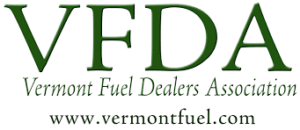Bulk Storage Faces Opposition
Local proposals to restrict bulk storage of heating oil and motor fuel in aboveground tanks is trending upward, especially in Vermont, but also in New York state, reports Contributing Writer Maura Keller.
In January 2014, a chemical spill from an aboveground storage tank in West Virginia caused the shutdown of a public water system and left 300,000 residents without public drinking water. Since then, some communities re-evaluated their regulation of ASTs and made changes to their laws. The small town of Shelburne, Vermont, population 7,730, is an example. In 2017 Shelburne passed an ordinance designed to limit bulk storage of heating and motor fuel to as little as 2,000 gallons.
Matt Cota, executive director of the Vermont Fuel Dealers Association, says Shelburne’s select board passed an “Ordinance Regulating the Storage, Handling and Distribution of Toxic, Hazardous and Flammable Materials” by a 3-2 vote. The ordinance prohibits any person or entity from storing hazardous material within one kilometer (3,281 feet) of a residence, school, or waterway, and prohibits all deposit, release, and disposal of hazardous materials within the town.
Cota says the Shelburne select board wanted to put restrictions on the storage and transportation of both heating and motor fuel. “Initial drafts of the ordinance limited storage to just 500 gallons and put prohibitions on new storage tanks,” Cota says. “The Vermont Fuel Dealers Association lobbied for significant changes to the ordinance to ensure the uninterrupted flow of fuel to residents and businesses in the town.”
At VFDA’s urging, the select board changed the proposed ordinance to allow new storage tanks of up to 2,000 gallons, regardless of fuel and purpose. However, the adopted version also allows the town to block the construction of new fuel bulk plants and restricts tanker truck operations such as offloading fuel or temporarily parking within town limits.
Cota says the ordinance was written to stop a salt shed and fuel terminal from being built on railroad property. The railroad filed a lawsuit, claiming the ordinance violated federal pre-emption; the court sided with the railroad, but the weight restrictions and tank size restrictions are still enforceable everywhere else in the town of Shelburne, according to Cota.
“The challenge is that large businesses and farms in Shelburne will have restrictions on fuel storage, which will require more frequent deliveries and increase truck traffic,” Cota says.
Cota stresses that prior to the new ordinance, there were safeguards already in place. Specifically, current state and federal safety regulations include:
- Above- and below-ground tanks must be constructed and installed according to strict specifications and must be regularly inspected.
- When more than 1,626 gallons of a hazardous material are stored on a property, its identity, location and quantity must be reported to state safety officials — along with emergency response plans.
- Tanks holding more than 1,320 gallons also fall under federal rules for spill prevention- and mitigation protocols.
One of Cota’s concerns about the Shelburne ordinance is that other towns will consider similar restrictions on fuel storage.
“This ordinance is unnecessary because Vermont has some of the toughest regulations in the country when it comes to fuel storage tanks,” Cota says. Vermont also has a prevention and spill response program operated by the Vermont Agency of Natural Resources, Department of Environmental Conservation.
“This is paid for by a one-cent per gallon fee on heating oil, kerosene and diesel fuel. Vermont requires all aboveground fuel storage tanks to be inspected and placed out of service if at risk of spill,” Cota says.
Nearby in the state of New York, the state’s Petroleum Bulk Storage (PBS) program applies to facilities that store more than 1,100 gallons of petroleum in aboveground and underground storage tanks. As New York State’s Department of Environmental Conservation (DEC) explains, facilities with one or more underground storage tanks larger than 110 gallons must also be registered. All tanks (with some exceptions) for the storage of petroleum at facilities must be registered with the DEC and managed in compliance with applicable regulations for the storage and handling of petroleum.
There are also the federal regulations. Any tank above 1,320 gallons is regulated by the U.S. Environmental Protection Agency and must have a Spill Prevention Control and Countermeasure plan in place. Further, any enterprise in Vermont that has hazardous materials on its property in excess of 10,000 pounds (approximately 1,626 gallons) must file an annual report.
According to Cota, fines in Vermont for failing to report the identity, location, and quantity of hazardous materials can be up to $37,500 per day, per violation.
“There is a significant effort to ban fossil fuel infrastructure in Vermont. There were thirty-five towns that passed non-binding resolutions in March calling for a ban,” Cota says. An anti-fuel group called 350Vermont, a nonprofit organization based in Burlington, is working on banning all new fossil fuel infrastructure in the state.
In addition to the 35 towns that voted in early 2018 to pass resolutions banning fossil fuels, three additional towns were voting on similar measures in the November election. The goal of the resolutions is to send a message to Vermont elected officials to fight climate change and to help the state reach its renewable energy goals.
“Our industry here in Vermont will continue to face opposition at the local and state level when it comes to storing and transporting heating and motor fuel,” Cota says. “It reinforces the need for us to stay vigilant.”




